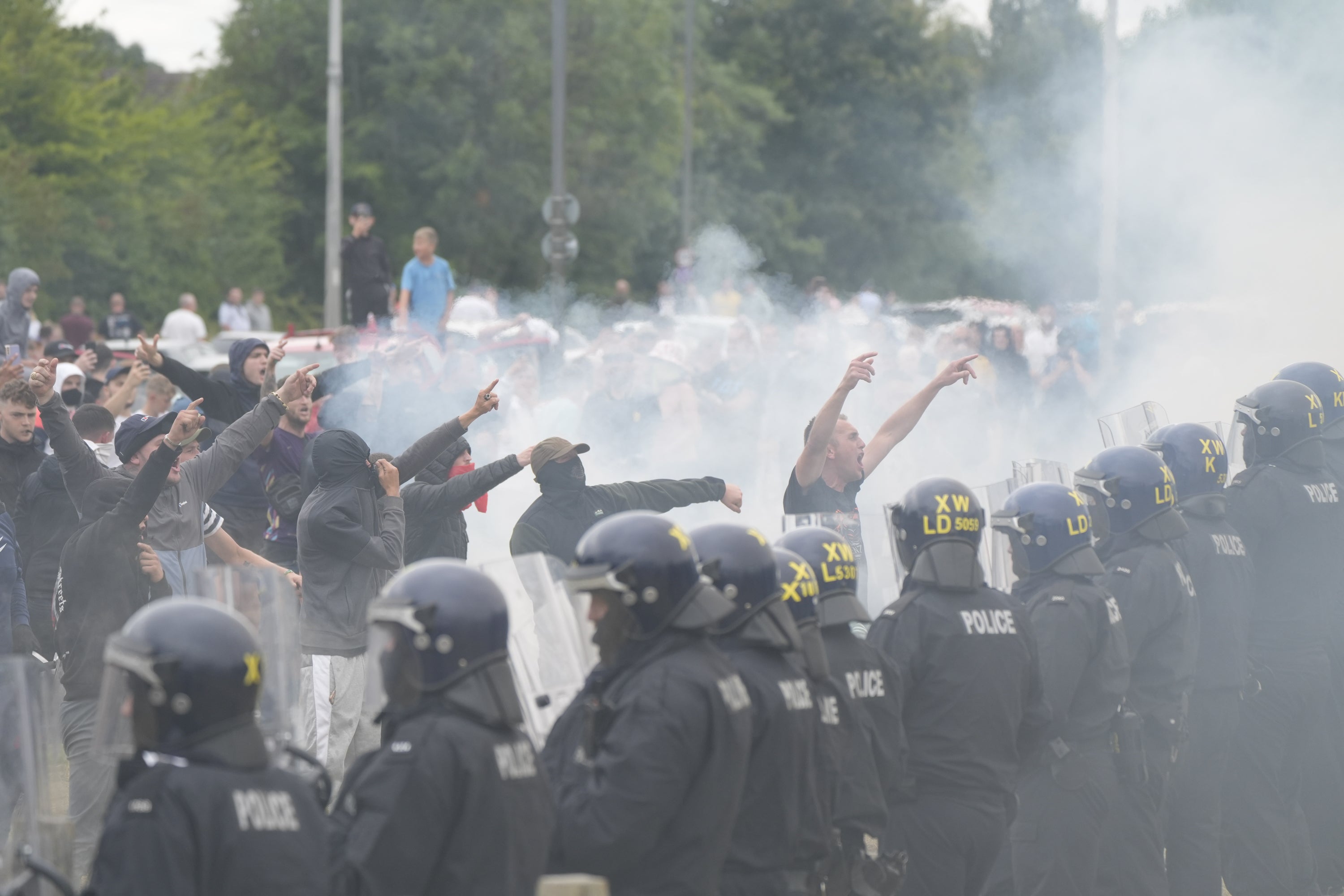Misogyny and violence against women identified as gateways to extremism, leaked Home Office report says
An online subculture called the ‘manosphere’ was identified as a gateway to extremist views by the Home Office report
Misogyny and violence against women have been identified as gateways to extremist beliefs in a leaked Home Office report that urges the government to approach extremism based on concerning behaviours instead of ideology.
Those include spreading misinformation, influencing racism, and involvement in “an online subculture called the manosphere”, according to the Policy Exchange think tank, which obtained a copy of the review commissiond by home secretary Yvette Cooper following the summer riots.
Ms Cooper said in August she had directed the Home Office to conduct a “rapid analytical sprint on extremism” to map and monitor trends and inform the Government’s approach.
The think tank said the review lists “behaviours and activity of concern” and “damaging extremist beliefs” including misogyny, violence against women and girls and having a “fixation on gore and violence without adherence to an extremist ideology”.
It also lists “spreading misinformation and conspiracy theories”, “influencing racism and intolerance” and involvement in an “online subculture called the manosphere”. It also says claims of “two-tier” policing are an example of a “right-wing extremist narrative”.

But Paul Stott and Andrew Gilligan, of Policy Exchange, said in an analysis of the report that the suggested approach risks swamping authorities with new cases.
“Some of the definitions of extremism also threaten free speech, defining aspects of normal and legitimate political debate as extremist,” they said.
The BBC reported that Ms Cooper disagrees with some of the central findings of the report and will push the Government to continue to focus on Islamist and far-right extremism.
A Home Office spokesperson told the BBC “a wide range of potential next steps” from the report were being considered.
The review notes that not all individuals associated with the manosphere promote extreme views and that it is “challenging to identify the extent to which misogyny is explicitly and consciously (or unconsciously) operationalised among violent extremists”, the think tank said.
The report also recommends reversing a code of practice to limit the number of “non-crime hate incidents” being recorded and floats the idea of creating a new crime of making “harmful communications” online, according to Policy Exchange.
After Axel Rudakubana, 18, pleaded guilty last week to murdering three girls at a Taylor Swift-themed dance class, Sir Keir Starmer said it was understandable that the public would look at the crime and “wonder what the word terrorism means”.
The Prime Minister said the teenager represented a new kind of threat, distinct from politically or ideologically motivated terrorism, with “acts of extreme violence perpetrated by loners, misfits, young men in their bedroom, accessing all manner of material online, desperate for notoriety”.

He said that if needed, the Government would change the law to recognise the “new and dangerous threat” and “review our entire counter-extremist system to make sure we have what we need to defeat it”.
Rudakubana was referred to the Prevent anti-terror programme three times but those referrals were closed due to his apparent lack of a clear ideology.
The Home Secretary has ordered a review of Prevent’s thresholds in response.
A Home Office spokesperson said: “The counter-extremism sprint sought to comprehensively assess the challenge facing our country and lay the foundations for a new approach to tackling extremism – so we can stop people being drawn towards hateful ideologies.
“This includes tackling Islamism and extreme right-wing ideologies, which are the most prominent today.
“The findings from the sprint have not been formally agreed by ministers and we are considering a wide range of potential next steps arising from that work.”
Shadow home secretary Chris Philp said: “By extending the definition of extremism so widely, the Government risks losing focus on ideologically motivated terrorists who pose the most risk to life.
“In fact, the Shawcross Review of Prevent made clear that counter-extremism and the counterterrorism strategy should be more focused on terrorist ideology, not less. Prevent must be equipped to deal with the terrorist threats in our society, and we should not be dialling back efforts to confront this.”
Join our commenting forum
Join thought-provoking conversations, follow other Independent readers and see their replies
Comments
Bookmark popover
Removed from bookmarks